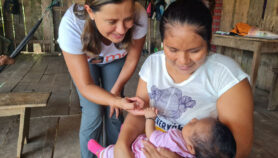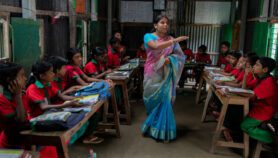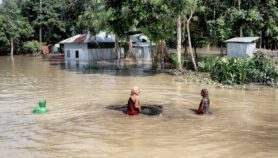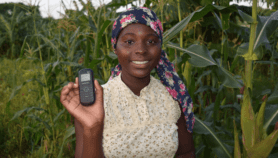Send to a friend
The details you provide on this page will not be used to send unsolicited email, and will not be sold to a 3rd party. See privacy policy.
The leaders of European Union (EU) member states have agreed to expand collaboration between European and African universities through the development of "Euro-African networks of universities and centres of excellence".
In particular, they have promised to help the countries belonging to the African Union (AU) to establish a new exchange programme for students, called the Nyrere Programme, under which students from one AU country can spend a year studying in another.
The new programme would be based on the EU experience with its Erasmus programme, which has been in operation for several years.
The commitments were made in a policy statement on a new EU strategy for Africa, which was drafted up by the European Commission, and approved at the six-monthly meeting of heads of EU states that was held in Brussels at the end of last week (15-16 December).
The document seeks to flesh out how the EU could implement a broader commitment to increase its support for developing countries, made at the G8 summit in Gleneagles, Scotland, in July.
As such, it is likely to provide a reference point for new initiatives to be financed under the Commission’s 7th Framework Programme, through its development directorate, and via the European Development Fund.
A draft version of the proposed strategy states explicitly that "sound scientific and technological knowledge is indispensable as a basis for strategic and sustainable development policies and for efficient and effective development cooperation".
Echoing a strong theme of the UK-led Commission for Africa’s report, published earlier this year, the draft statement also calls for a strengthening of agricultural research that is driven by the demands of the poor in developing countries, as well as the applications of that research.
This could be achieved, it suggests, by promoting collaboration between the European and African research communities, at the level of the Consultative Group on International Agricultural Research (CGIAR), and by supporting mechanisms to enhance regional coordination in Africa.
The draft had also proposed that national research networks should pioneer the adoption of new communication technologies, such as methods for linking research institutes across entire regions. This could lead to the introduction of these technologies onto wider, less academic markets.
The final shortened version of the new policy which emerged from the European Council on Friday does not make any explicit reference to either science capacity building or agricultural research.
However by giving its support to the development of centres of excellence, it has endorsed the efforts of groups such as the science and technology commission of the New Partnership for Africa’s Development (NEPAD), which sees such centres as playing a key role in building Africa’s scientific capabilities.













